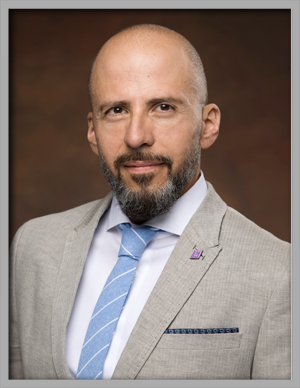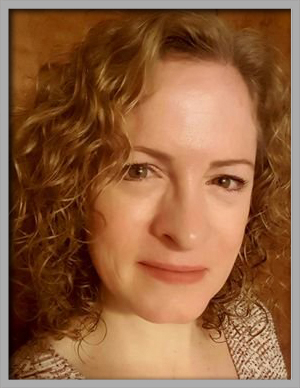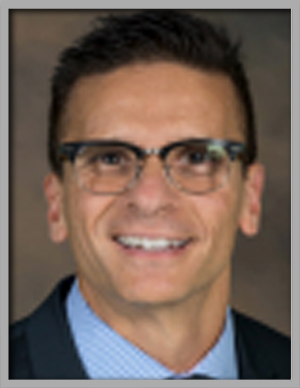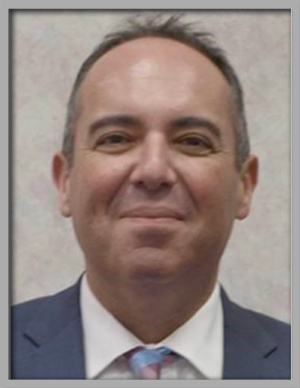Keynote Panel Description
“Research can be a powerful tool for social change—and for maintaining the status quo. Research can be used to suppress ideas, people, and social justice—and it can be used to respect, empower, and liberate. Good intentions are never enough to ensure anti-oppressive processes or outcomes.” (Potts & Brown, 2015 p.2)
Throughout numerous policies and documents that operate in schooling, including the Ontario Leadership Framework for Education, if not used correctly, however, data can be weaponized to further oppress already oppressed communities by framing conversations as gaps in students, rather than flipping the gaze towards the system. Data must be used to analyze and understand what gaps and barriers exist in our policies and procedures that are creating conditions that do not support students to achieve success. We must build our critical consciousness of the many pipelines in education that are premised on certain interpretations and uses of data.
Our afternoon panel represents diverse boards across the GTHA and will engage in a conversation on how to effectively use data, how data has been able to help us to inform equitable and inclusive planning, and how we are accountable to communities for the data we collect.
Bios

Mohamed Hamid
Superintendent Durham District School Board
"A self-described life-long learner, Mohamed Hamid is a Superintendent of Education with the Durham
District School Board who is committed to Equity and Inclusion. He has spent the last 26 years creating innovative learning culture, and is currently most passionate about the work he is doing to support the diverse communities of Durham.
As a settler to Canada turned Educator, Mohamed has developed a unique perspective when it comes to education and marginalized communities. Influenced by ongoing conversations with Scholars and Elders, he strives to ensure students experience learning free from discrimination and discriminatory barriers.
While education is his primary job function by day, Mohamed also enjoys spending time with his family and finding roads, mountains, and waves to ride.

Joan Oracheski
Ottawa Carleton District School Board; Manager of Research, Evaluation & Analytics (READ)
Joan has served the OCDSB for the past 25 years in various research roles throughout the organization. For the last 17 years, she has been in a senior leadership position as MISA Lead and Manager of the Research, Evaluation & Analytics Division (READ) in which she leads a team of researchers to support evidence-informed decision making from the system to the student level in order to improve learning conditions and outcomes for students. Over the course of her tenure, she has been actively involved in committees and work at international and provincial levels. Most recent examples include providing early input to the OECD Study on Social-Emotional Skills and serving as Chair of a working group established by the Equity Secretariat in 2017-2018 to provide guidance on strategies for the collection of identity data in Ontario. Joan also sits on committees for local partner organizations, including Equity Ottawa, and has successfully established a Technical Advisory Group comprised of diverse community members and organizations to help guide the analysis and reporting of identity data collected by the District in 2019.

Shannon Smith
Ottawa Carleton District School Board - Superintendent of Instruction, Indigenous Education, Equity and Human Rights
Currently a Superintendent of Instruction with the Ottawa Carleton District School Board, my portfolio includes a family of schools as well as responsibility for Indigenous Education, Equity and Human Rights. My background includes a focus on special education and my experience in the classroom and as an administrator spans K - 12. I live with my husband, a system administrator with the OCDSB, and two children on unceded and unsurrendered Algonquin territory in Ottawa, ON.

Jim Spyropoulos
Human Rights and Indigenous Education Executive Superintendent
Jim Spyropoulos is the Executive Superintendent of Human Rights and Indigenous Education at the Toronto District School Board. As part of his portfolio, Jim has played a significant role in expanding and extending the mandate of the Board’s Human Rights Office into all schools and workplaces. Additionally, he plays a significant role in implementing elements of the Board’s Multi-Year Strategic Plan in the areas of Caring and Safe Schools, Accessibility, Employment Equity, Continuing Education and International Students and Admissions. Through his work as the Executive Lead on a number of the Board’s Community Advisory Committees, he has worked to ensure that authentic parent and community voice is present and included in the work of the Board.
Jim has been privileged and honoured to work closely with the Board’s Urban Indigenous Education Centre where he has supported the work initiated as part of the ground-breaking “Decolonizing our Schools” report written by Dr. Susan Dion. During Jim’s tenure and through the dedicated leadership of the communities, an elder’s council has been created to guide the work of the Board in all matters dealing with Indigenous Education. The Trustees of the Board have prioritized Indigenous education as part of the Board’s annual budget process. A source of sustainable funding has been created to support Indigenous education initiatives. Enrolment at the TDSB’s Indigenous focused school has doubled. The school has been relocated, renamed, reconfigured and is undergoing extensive renovations which will make it more equipped to fulfill the important purpose it serves. The position of Indigenous Student Trustee has been created. The Urban Indigenous Community Advisory Committee is thriving. Two Native Learning Centres reengage Indigenous secondary school students at opposite ends of the city. Hundreds of teachers receive professional learning annually in structured, classroom embedded learning sessions. The number of Indigenous system leaders has grown. And of critical importance, educational outcomes are improving for Indigenous students.
Before becoming a Superintendent, Jim was the Principal of two schools in the Toronto District school Board, Newtonbrook Secondary School and C.W. Jefferys Collegiate Institute. Jim holds a Master of Education degree from the Ontario Institute for Studies in Education and well as a Bachelor of Education and Bachelor of Arts degrees from the University of Toronto.

Jack Nigro
Superintendent, Durham District School Board/ Adjunct Professor, York University
Jack Nigro is currently Superintendent of Elementary Curriculum, Durham DSB, and recently served as Superintendent of Indigenous Education and Equity at the Kawartha Pine Ridge DSB. He is the past Superintendent of Curriculum at the Halton Catholic DSB, which included responsibilities in Equity and Inclusive Education, Newcomer Students, New Teacher Induction, and Kindergarten. He is also the past co-chair of the TARO Equity and Inclusive Education Network and was both a local and provincial EIE lead for the Ministry of Education in his previous role as Education Officer at the Toronto and Area Regional Office. Jack has held portfolios in Parent Engagement, Leadership Development, and NTIP for the Ministry of Education, and also served as a Private Schools Inspector, inspecting over 80 schools both in Ontario and China. Previous roles also include a teacher with the Toronto Catholic DSB, a curriculum developer and administrator with the Independent Learning Centre, and the Director of the School-University Partnerships Office in the B.Ed. program at OISE/UT. Jack was recently also on a Canadian team engaged by the Government of Trinidad and Tobago that was working on the renewal of their Kindergarten and Early Childhood Education program. He is very proud to be an Adjunct Professor at York University.

David Hagen Cameron, PhD
Toronto District School Board/Senior Manager of Research and Development
David Cameron is the Senior Manager of the Research and Development Department in the Toronto District School Board. He is an educator and education policy sociologist with research interests in school change and the interrelationship between educational policy intentions or design and peoples’ experiences within policy frameworks. David has twenty years of experience working in the school systems of Ontario, U.S. and U.K. Most recently, David worked as a Director of Research for People for Education, an NGO think tank that advocates for public education. David believes that societal health and Human Rights depend on an enriched and vibrant public education system.
